
The National Club Baseball Association (NCBA) is the fastest growing intercollegiate baseball organization in the country. It remains the only national governing body for collegiate club baseball and has the mission of providing student-athletes with the opportunity to play competitive, organized college baseball and to continually improve this experience for all participants. The National Club Baseball Association is a division of CollClubSports.
Sports Destination Management: It’s spring and everyone is thinking of baseball, but college ball has been playing for some time. How popular is college club ball?
Christian Smith: National Club Baseball is by far the largest of the leagues we offer. In fact, it is so big that we have had to break it down into different divisions. We have 306 member colleges and universities fielding teams: 138 in Division I, 130 in Division II and 38 in Division III.
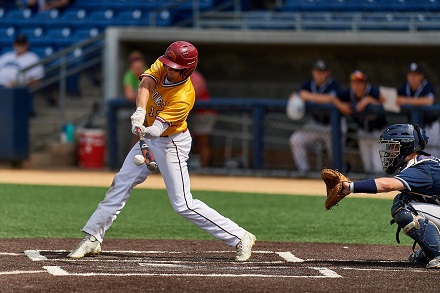
Smith: Yes, we normally see, at least historically speaking, that we lose a few clubs here and there each year, but we’re adding a few more than we lose. I would say we get between 15 and 20 new ones participating each year. It keeps growing and growing and we wonder when things are going to slow down.
SDM: Is there a reason players choose a club baseball program over a varsity program – or is it because the schools don’t offer a varsity baseball program?
Smith: The mast majority of our club teams are in schools that also have a varsity team on campus. The story for a lot of players is that they were on their high school baseball teams and really enjoyed that, and had the chance to play varsity ball at a lower level college but instead chose to go to a larger university. Club baseball gives them the chance to continue playing.
Baseball is so popular at the club level that we have several schools that have formed a second club team since we have a maximum roster of 30 guys. Penn State is one of those cases; they are a huge campus with a lot of baseball talent. They have a Division I club that was very popular and so they formed a Division II club as well. We have rules in place so that schools can do that; we don’t want them starting two teams that are going to be competing against one another.
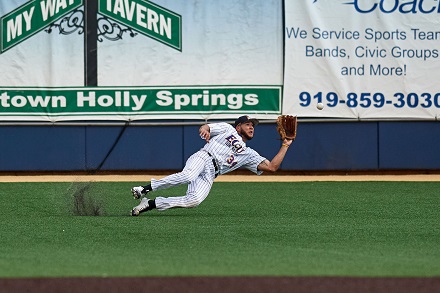
Smith: It depends. I’ve been here 12 years and when I started, everything was student-run but we’re seeing a trend of more teams having head coaches that are paid. Maybe they’re not paid a lot but they are paid. Still, I would say the majority are fully student-run.
SDM: Are teams responsible for doing their own fund raising if they need to travel or buy uniforms and equipment?
Smith: Some schools will give money and some won’t. But in general, the club teams are going to be responsible for some things, whether it’s fund raising, travel planning or scheduling. For a lot of guys, running the club baseball team is like running a small company.
SDM: It sounds like it teaches them good time management skills.
Smith: Well, yes, it does. They need to be students first and athletes second, but they still have to deal with travel, equipment purchasing and everything else. They have to deal with the players too – it’s like being their own human resource department. It’s really admirable how much time they put in.
SDM: Do alumni stay involved?
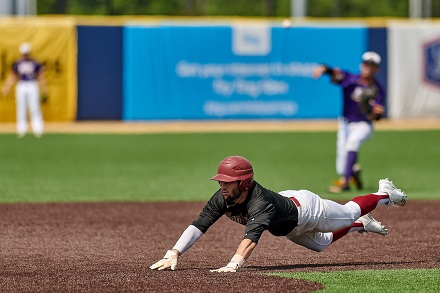
SDM: Where do you think club sports come into play in kids’ choices of a college?
Smith: The fact that a certain college has a club team can definitely be an inducement. A parent will sometimes reach out to us if a kid is in limbo between schools; they’ll ask us, “What’s the club baseball like at Florida State?” and we’ll tell them it’s not intramural; this is very organized and competitive program – just not as much as varsity baseball. It makes the school much more appealing for the kid to go there.
SDM: Club baseball hosts national championships. How are those set up?
Smith: Each division is broken down into conferences and teams play their opponents in that conference. Each conference winners gets a bid to regionals, which is a four-team double-elimination tournament. The winners there go on to the national championship.
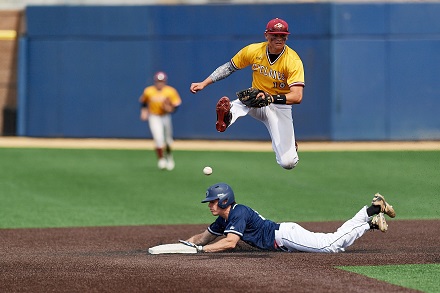
Smith: For Division I and Division II, we find neutral locations for all the teams in each specific region. We find the field, the umpires and the host hotel. They pay their travel costs. At the Division III level, there are only about 30 teams so the top-seeded team in each conference hosts the games.
SDM: When it comes to a championship venue, what are you looking for?
Smith: Our top priority is a quality venue. Most teams are driving in so having a major airport nearby isn’t a concern. Quality lodging at a good value helps. We work with partners like convention and visitors bureaus and sports commissions to get the word out about the event.
SDM: Do you get spectators?
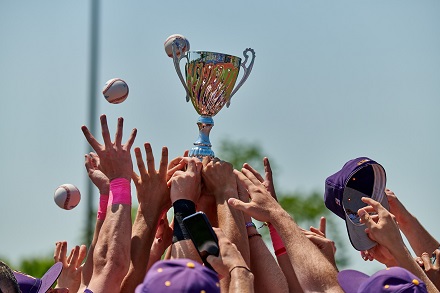
SDM: That must make for a good experience for the players.
Smith: Yes, it does. The guys that are running these club teams are hard workers who really love the game of baseball and the local people see that. What they really enjoy is the fact that these are guys who are truly playing for the love of the game; they’re not on scholarship and in fact they’re paying to play because they truly love the sport. And the level of talent is really high. I think sometimes people come out and see the quality of play and they’re really surprised. It’s something I always marvel at – how much they love the game and how good they are at it.

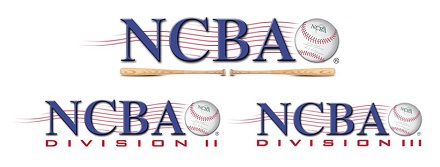 www.clubbaseball.org
www.clubbaseball.org